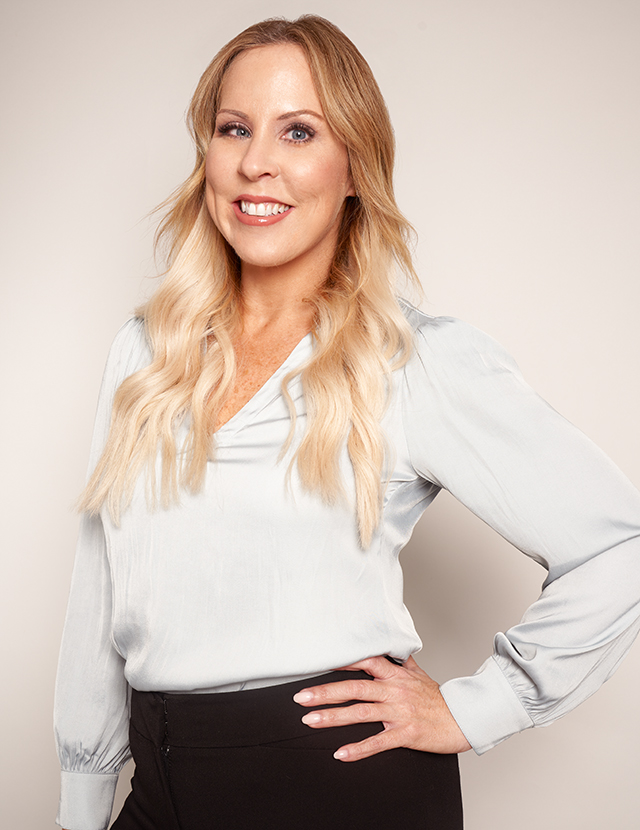“What we’ve got here is a failure to communicate.” You won’t hear echoes of that era-defining line of dialogue from the classic 1967 drama starring Paul Newman on the watch of Shannon Cruz Lloyd. The AVP for human resources at suburban Atlanta-based MIMEDX is a fervent proponent of employee engagement, and the pandemic only strengthened her commitment to communicating.
“We do still have a business to run, but we want to be sensitive to our people’s needs, as well as their families,” she says. “It’s a delicate balance. What has helped us is being able to listen to the employees and ask them what they need. We may not be able to say we can meet 100 percent of what they are asking for, but we try to compromise to see what we can do. At least we are asking people what is important to them and what they need from us.”
Born in Del Rio, Texas to a Hispanic/Caucasian mother and a father from Guam, Lloyd’s parents prioritized education. Hard workers who got married and divorced as teens, they graduated high school, but did not attend college. After spending her childhood between Texas and California, she eventually transitioned to California to begin high school and live with her grandmother.
“I could work in any other industry and still be able to apply my knowledge in helping people and management to be the best versions of themselves.”
Shannon Cruz Lloyd
“My family wanted me to have a better life,” she says. “I was always interested in school, so they didn’t have to push me too much. I was the first in my family to go to college.”
The Californian initially studied Organizational Psychology at San Diego State, and though it wasn’t originally her plan, she later earned an MS in HR Management and Employment Law. “I was a music major with a dance minor. But I had a part-time job during college, which gave me an administrative introduction to HR, and I felt I was pretty good at it.”
“Before I graduated, I ended up in a role at Sony Electronics, where I was an HR assistant,” she continues. “Within a couple of months, I was promoted to junior recruiter. I’ve always been told that I’m diplomatic, but also pragmatic and empathetic. I felt HR was a natural fit that would play to my strengths and could possibly be a nice career path.”

Now in her fifth year with MIMEDX, she serves as an industry leader in HR specifically in the global biopharma space. “What I like best about HR is that while I’ve been fortunate to mostly work in the pharma/medical device industry primarily in a global capacity as well as with organizations of all sizes. I could work in any other industry and still be able to apply my knowledge in helping people and management to be the best versions of themselves,” she says.
“HR is always a work in progress.”
Shannon Cruz Lloyd
The AVP describes her current role as unique in that she is both customer-facing, but also operational. “I work strategically with management on issues, such as performance, coaching, engagement, recruiting, retention,” she says. “But I do also have a role in developing and initiating operational items, specifically optimization and process improvement initiatives. I’m fortunate to lead and manage an amazing team. I wear a lot of different hats.”
Perhaps the biggest change in HR, and certainly a contemporary challenge, she says, is what is being called the Great Resignation. Last year, according to the Bureau of Labor Statistics, more than 47 million Americans quit their jobs. And resignation rates continuing rising at unprecedented rates in 2022.
“There was a lot of employee uncertainty during the pandemic,” Lloyd says. “Now that it is starting to feel a little bit more normal, people are reevaluating their roles and their purpose. They are reconsidering what is important to them. We have to recognize that employees have several options; why should they stay if there are more choices out there? They’ve become accustomed to some flexibility.”
Surprisingly, work-life balance and continuous development tends to be a stronger driver than salary in some cases, Lloyd notes. “Employees want to be recognized for their hard work,” the HR leader says. “They want to be sure that enough is being done in terms of growing their career.”
As businesses navigate a post-pandemic world, Lloyd believes people need to rethink HR as a strategic partner. “I would like people to see HR as a function that ultimately wants to see the people impact the companies for whom they work,” she says. “If you have great talent, your business will be productive, everyone is happier and more engaged, and that will drive profitability.”
What can companies do to facilitate this? “Someone needs a tagline for that,” Lloyd says with a laugh. “It’s challenging. We need to be able to identify root causes where we can; to actually ask, listen, and ultimately, take action.”
“It can be something as simple as talking to people to see if there are any patterns we can address, or creating a culture that provides employees with a sense of purpose in why they even want to come to work every day,” she continues. That can be a struggle for many companies with even the best existing cultures. They have to continuously work on it. You can always be doing something to improve your culture. HR is always a work in progress.”


